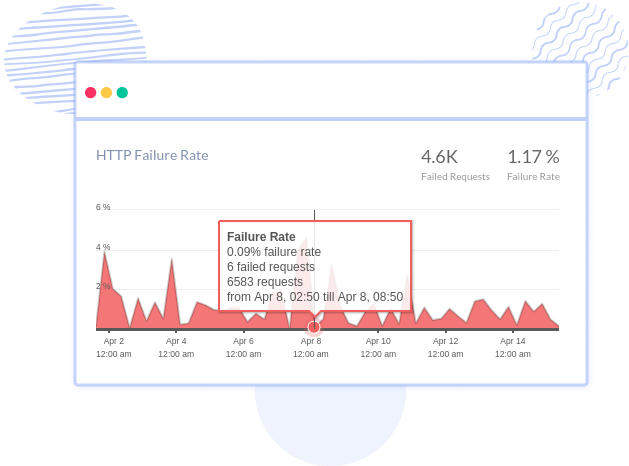Proactive SSL Certificate Monitoring
Don't let expiring SSL certificates catch you off guard. Atatus SSL monitoring keeps you aware of expiration dates so you don't experience any downtime.

Receive SSL Expiry Reminders
Receive alerts when your SSL certificate is about to expire, giving you ample time to renew it and prevent downtime. By receiving automatic alerts, you can take action well in advance, ensuring that your website remains secure and your customers remain protected. In addition, it helps you stay ahead of the game by giving you the information you need to take action quickly and efficiently.

Robust SSL Assertion Checks
Ensure your website's SSL by creating robust assertions for SSL API checks that cover every possible failure scenario. This will give you a holistic understanding of what could go wrong and where. View all possible incidents in a single, easy-to-use interface, making it simple to track any issues. And if a failed incident is identified, you can quickly fix and close it manually, giving you peace of mind knowing your site is secure.

Track SSL Uptime across the globe
Keep your website running smoothly with SSL monitoring. By tracking uptime worldwide or in specific locations, SSL monitoring can help you catch issues before they become significant problems. Also, by performing API tests and monitoring SSL security, you can ensure that your website performs at its best and keeps your customers safe.

Build Customer Trust with Secure SSL Certificate Monitoring
To ensure that your website is always at peak performance, it's crucial to leverage the power of SSL certificate monitoring. By monitoring your SSL certificate regularly, you can provide an outstanding online experience to your customers and bolster your reputation as a trustworthy business.

Historical Uptime in a Single Place
Are you curious about how your SSL certificate has been performing over time? With our Historical Uptime feature, you can easily view your past SSL uptime in a single tab. This feature provides a calendar-based model that visualizes your SSL performance over time, allowing you to quickly see trends and identify any issues that may have occurred.







 +1-760-465-2330
+1-760-465-2330


